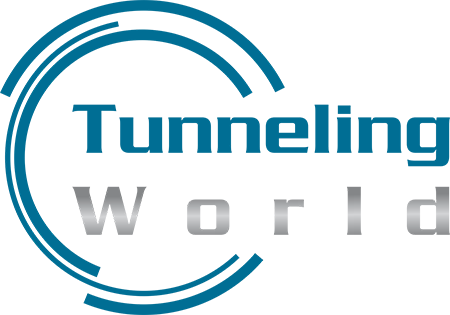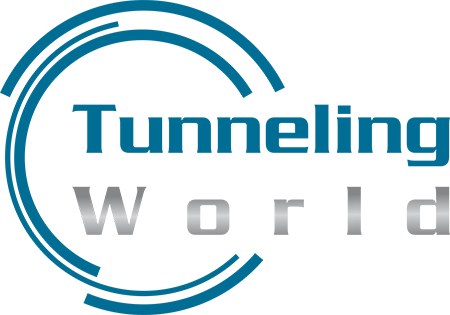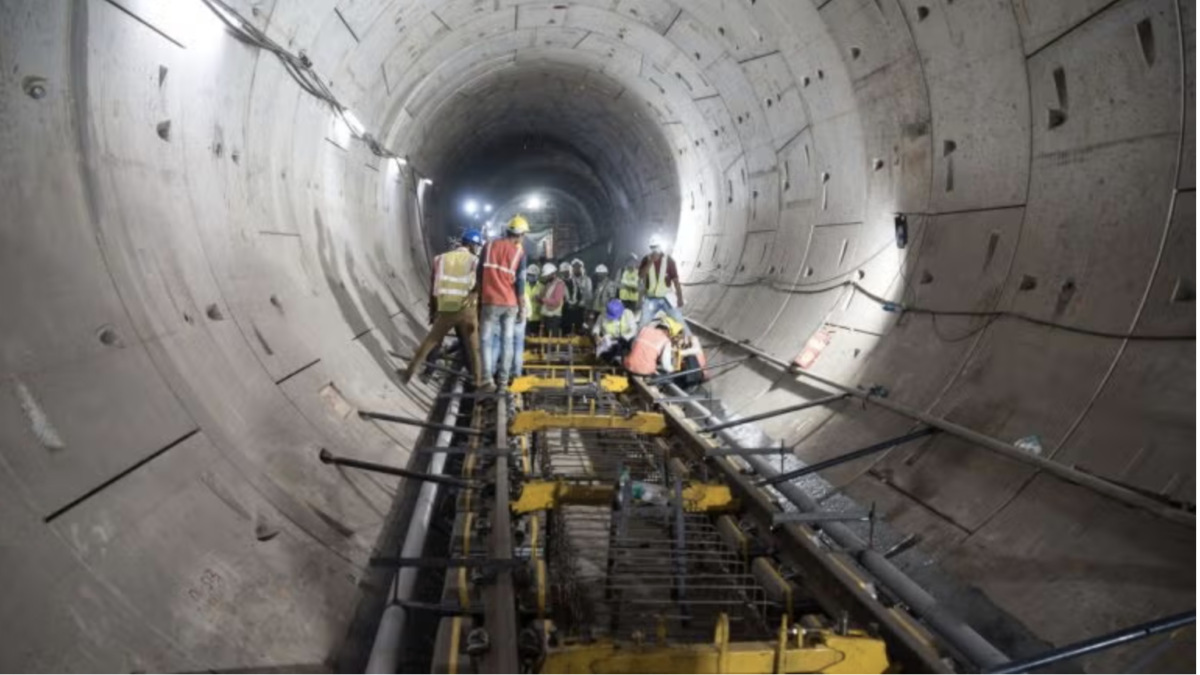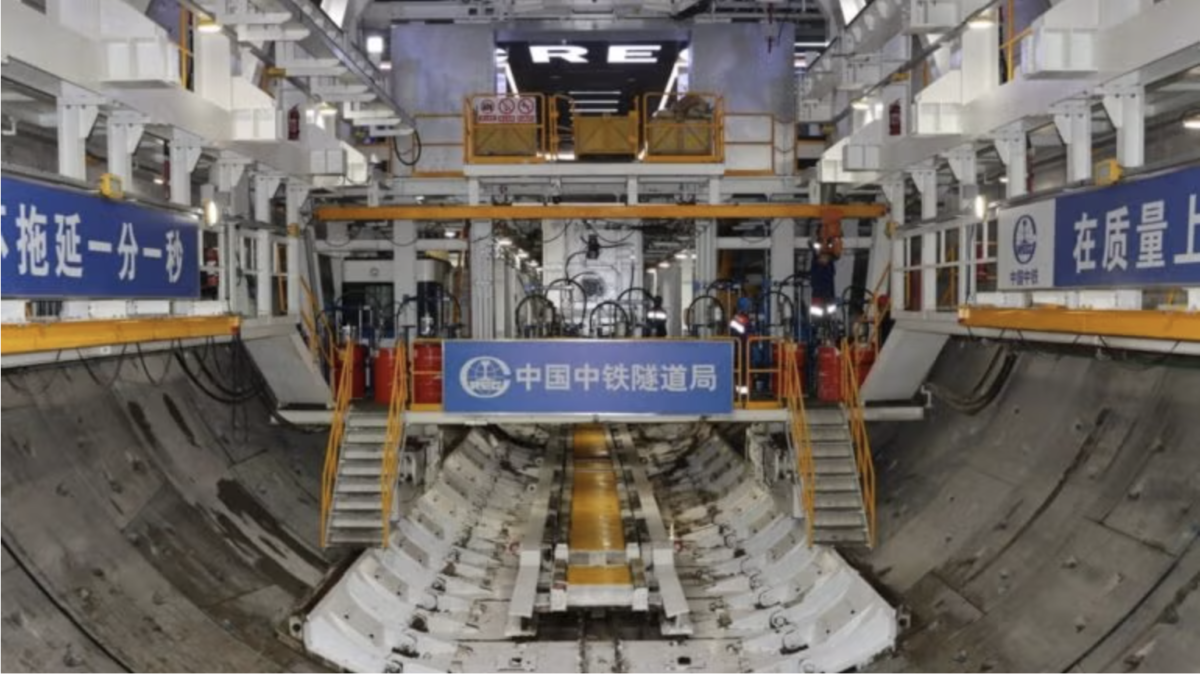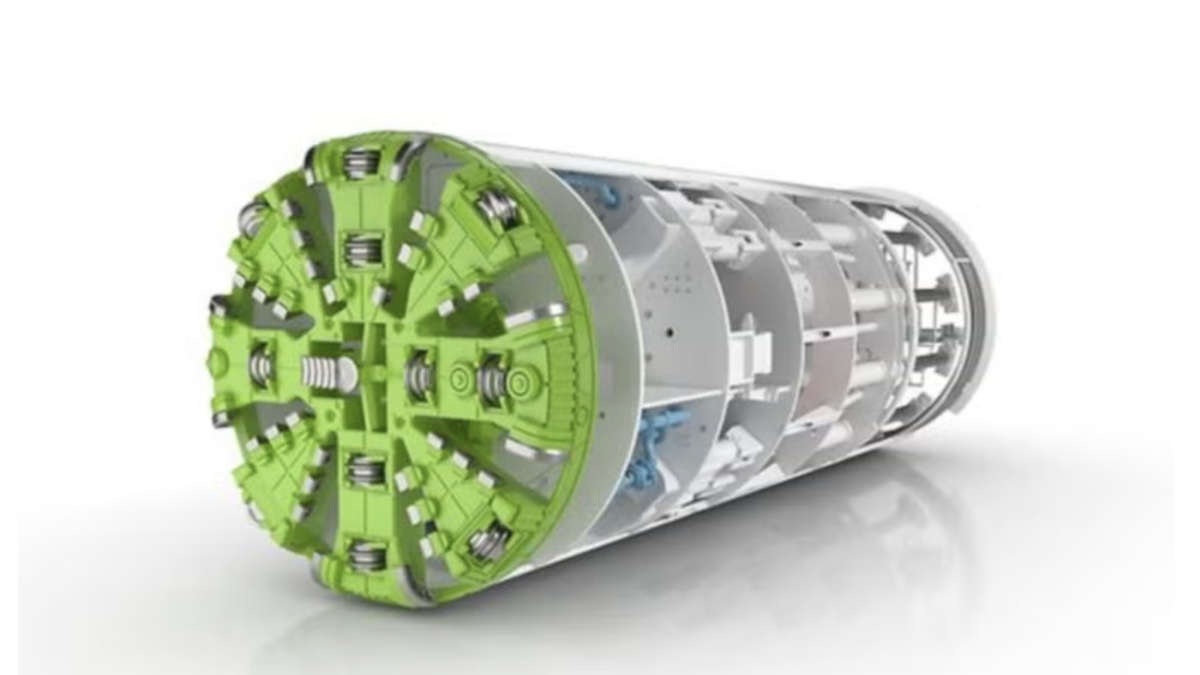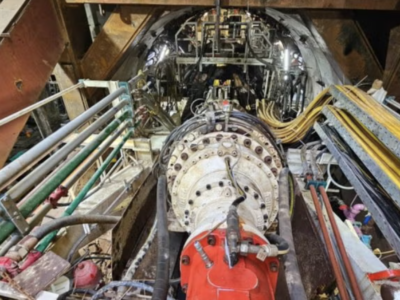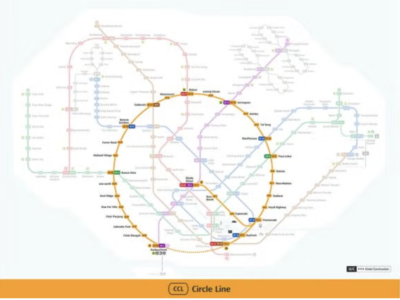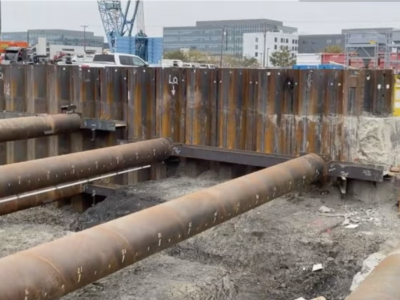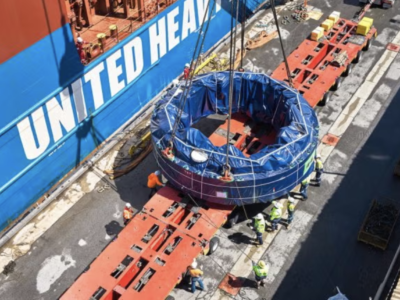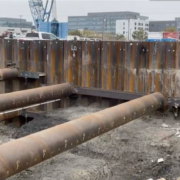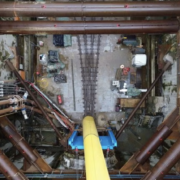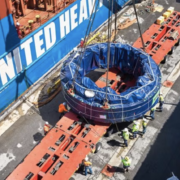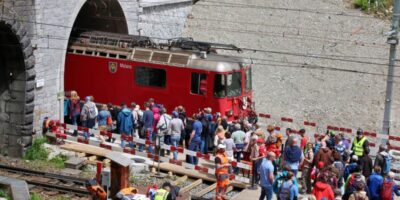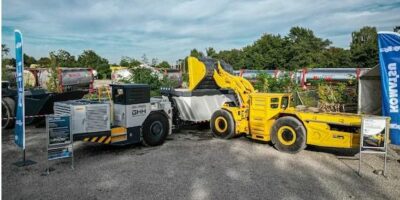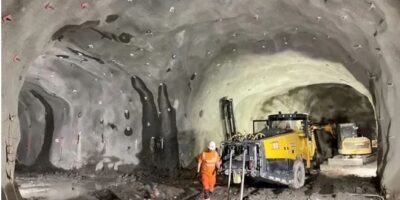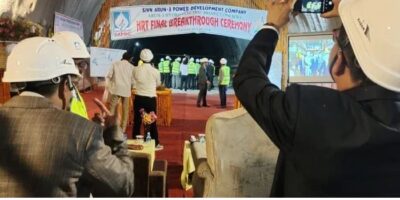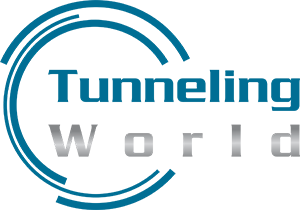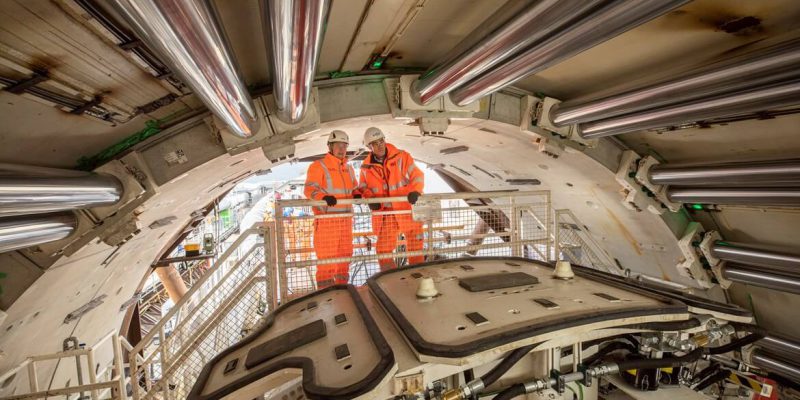
On 27th October, HS2 Ltd launched its fifth TBM (Tunnel Boring Machine) called Caroline, which is going to be building tunnels for the HS2 railway through the capital. The second launched in London, the 2,000 tons machine joins ‘Sushila’, which was switched on earlier this month on the same West London site.
The giant machine which is named after 18th century astronomer Caroline Herschel, will now bore for 22 months, non-stop, towards Greenpark way in Greenford – digging five miles of the twin-bore Northolt Tunnel. The TBM is going to be operated by a crew of 15 people, working in shifts. 25 more people will directly support each tunnel drive on the surface.
Averagely travelling 14m per day, ‘Caroline’ is going to excavate the five-mile tunnel and install 4,207 tunnel segment rings to build the tunnel. Each ring of the tunnel is comprised of seven concrete segments which have been made in the UK by Pacadar based in Kent.
The TBM was switched on by HS2’s Civils Delivery Director, Mike Lyons. He appointed: “HS2’s construction continues to gather pace, and the launch of the fifth Tunnel Boring Machine on HS2 is another significant moment for Britain’s number one levelling-up project.
“Creating jobs and contracts for businesses today, HS2 is an investment in Britain’s economic growth now and for generations of rail passengers to come.”
The machine was given the name ‘Caroline’ after it was put forward by pupils at Brentside Primary Academy in Ealing, who were inspired by her contribution to astronomy whilst learning about earth and space in their science lessons. German-born British astronomer Caroline Herschel was respected as the first professional female astronomer. She discovered three new nebulae (hazy clouds where stars form) and was the first woman to ever discover a comet in 1786. She compiled a catalogue of 2500 nebulae and, in 1828, the Royal Astronomical Society awarded her its gold medal for this work.
The mentioned tunnel boring machine is said to be operated by Skanska Costain STRABAG JV (SCS JV), HS2’s Main Works Civils Contractor constructing the HS2 tunnels in London. She will join ‘Sushila’ who has already travelled more than 70m in the three weeks since its launch.
Managing Director of Skanska Costain STRABAG JV, James Richardson mentioned: “We’re delighted to have begun our tunnelling journey towards Euston, travelling under one of the busiest cities in the world. Getting to this point has been a huge team effort and the scale of this programme has enabled many new people to join the industry and work on this crucial national infrastructure project.”
Once ‘Caroline’ and ‘Sushila’ reach their destination at Greenpark Way, they will be disassembled and extracted from a 40m deep shaft.
Two other equally massive TBMs will set off towards Greenpark Way from HS2’s Victoria Road site in 2023 individually, to construct a further 3.4mile twin-bore tunnel. Combined, the quartet of machines will construct 8.4miles of twin bored tunnels between West Ruislip and the new high-speed rail super hub station at Old Oak Common.
Some facts about the TBMs are as follow:
- Each boring machine is 140 meters in length, one and a quarter times the length of a football pitch
- Each has a cutter head that is 9.84m in diameter, almost as tall as two giraffes standing on top of each other
- They each weigh nearly 2,050 tons, approx. the weight of 10 blue whales
- 2 million cubic meters of bored material will be removed, weighing 2.46 million tons
- A single tunnel segment ring weighs 8.5 tons
Another 4.5-mile twin-bore tunnel extending from Old Oak Common to Euston is said to complete HS2’s journey to its London terminus.
Spoil from the tunnels at West Ruislip won’t travel far as it is going to be used for sustainable placement to the North, making embankments for the new railway, plus new environmental habitats. Also, it will be used to remodel the West Ruislip golf course which is closed during HS2 construction.
